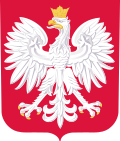| | |||||||||||||||||||||||||||||||
| |||||||||||||||||||||||||||||||
All 48 seats in the Silesian Sejm 25 seats needed for a majority | |||||||||||||||||||||||||||||||
This lists parties that won seats. See the complete results below.
| |||||||||||||||||||||||||||||||
 |
|---|
Parliamentary elections were held in the Silesian Voivodeship on 23 November 1930 [1] [2] to elect deputies to the Silesian Sejm.
